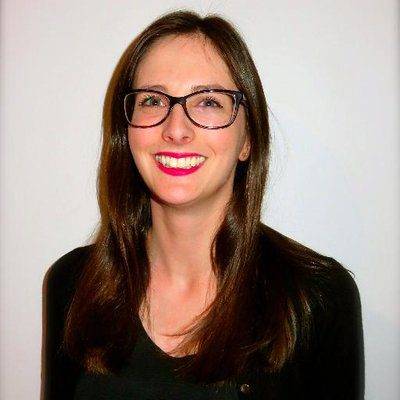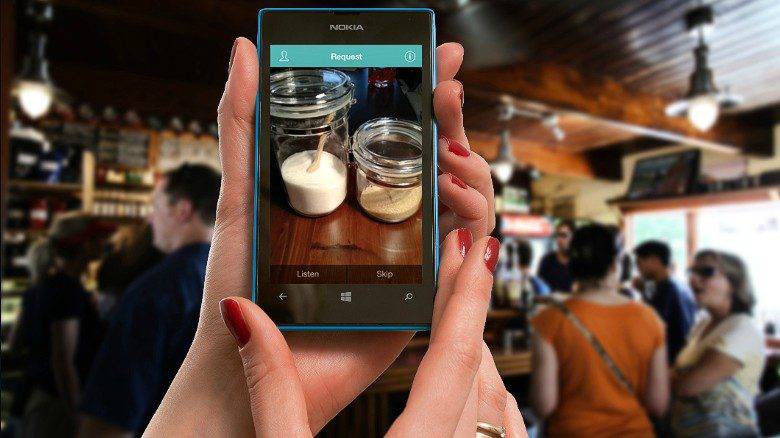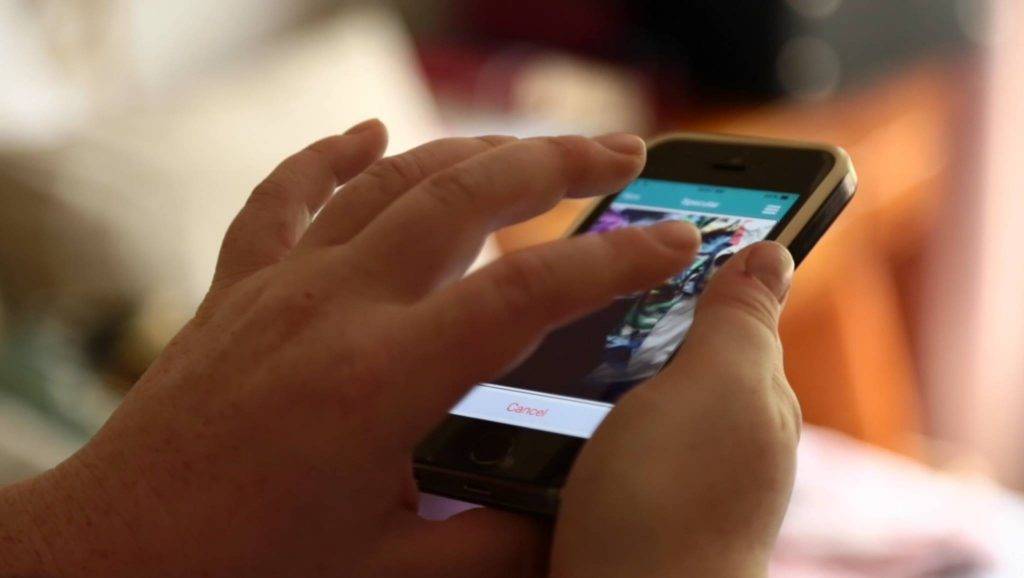How This South African Entrepreneur Is Gifting Visually-Impaired Persons With The Power Of Sight

Of all the senses, sight is probably the most valuable, and losing it completely could prove quite challenging – something no one should ever have to go through.
Of course, being visually-impaired is not the end of the world – one could yet live a fully functional and fulfilled life absent the ability to see – but then, there’s no denying that the task of ‘living’ is a whole lot easier with a pair of working eyes, or perhaps, even one of them.
For persons like Chris Venter – a 45-year-old South African chef whose sight away was taken away by a nasty virus while on an ill-fated inter-country scooter tour, and who has no intentions of hanging his apron any time soon – finding his way around the kitchen does take some major effort.
While it might just be only a matter of time before he recalibrates himself and gets the hang of such basic tasks like chopping onions without cutting himself or emptying a carton of milk in a glass jug without spilling, he’d still be left hard done by such finer details as telling the actual colour of an onion or determining that a pack of milk is past the best-before mark.
And that’s just one of the more benign challenges that come with being visually-impaired. There are those things such physically-challenged persons can learn to handle on their own pretty well, and then, there are many others that they simply need help with. This would imply having to depend or rely on someone – possibly a loved one – all the time. And popular opinion has it that that is not always possible.

Source: Twitter
Enter Stephanie Cowper; a South African tech entrepreneur who is looking to alleviate the plight of the visually-impaired by “re-gifting” such physically-challenged persons with the power of sight – at least, in a figurative sense.
By harnessing the power of mobile technology, the South African techie has set up BeSpecular; an app that is designed to assist visually-impaired persons in the identification of objects and situations, thus, helping them lead more independent lives. This way, the South African techie might just be making a difference ‘one app download at a time.’
The idea for the app was conceived back in 2014 during her time at Stanford University in the United States, where she majored in Technology Entrepreneurship. And that was after she obtained BCom Honours in Strategy and Innovation Management at South Africa’s Stellenbosch University in 2013.
Cowper was brainstorming with a colleague, Giacomo Parmegianni, on a compulsory semester project which demanded that they came up with ways to utilize technology for the good a segment of society that is often neglected.
After rubbing minds for several weeks, the duo identified the difficulties faced by visually-impaired persons in identifying objects and/or situations as something that could be palliated by their set of skills.
“We wanted to have a big impact on people’s lives using tech,” Cowper says. “The disability industry was somewhere we could actually make a big difference.”
“We wanted to have a big impact on people’s lives using tech,” Cowper says. “The disability industry was somewhere we could actually make a big difference.”
Cowper and her partner soon got working on an app that could assist such persons after conducting some preliminary research at the annual conference of the American Council of the Blind.
Although it started out as a mere semester project, their research findings pointed to a significant need for their product and this encouraged them to launch their startup, BeSpecular Ltd, and bring the app to the market after the completion of their academic programme. That was in June 2014. Cowper currently holds the reins as CEO of the startup while Parmegianni functions as CTO.

The app is an innovative, simple and quick way for a visually-impaired person to ask a question and have it answered by someone sighted anywhere in the world. With subscriptions to the app, visually-impaired individuals can take photos of the object/situation that they need to identify and ask a sighted person to answer with a reply via a text or voice message.
BeSpecular uses an algorithm that is similar to a dating app to connect the right people. By taking into account the profile of users, requests from physically-challenged persons are sent out to a number of volunteers of similar age and physical location.

Smartphones used by persons living with visual impairments are known to work with a special touch-based/synthetic speech interface. That is to say, such phones are operated by feeling around the touch screen and having the touched items read out as audio speech to the user. This way, visually-impaired persons are able to use smartphones and by extension, the app.
Besides deriving some self-satisfaction from what seems like a charitable course, there are also incentives for sighted volunteers who help out in the identification of objects/situations. For lending their eyes to the blind, such persons are entitled to periodic rewards and tokens as a form of appreciation for their assistance.
On average, it takes anywhere between thirty seconds and one minute for visually-impaired persons to get a helpful response from a sighted volunteer. From Japan to Finland and Mexico, BeSpecular boasts users in over 50 countries worldwide, and that’s according to the company.
Going forward, the goal is to translate the app into other languages, as well as launch a business software that will help to raise awareness of disability in the workplace, especially in the African society where blind people still deal with a lot of stigma. The said software is currently being tested in a number of companies in South Africa.